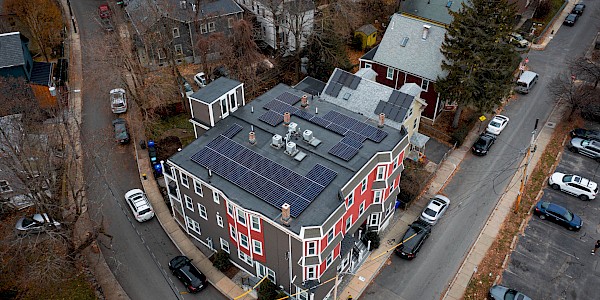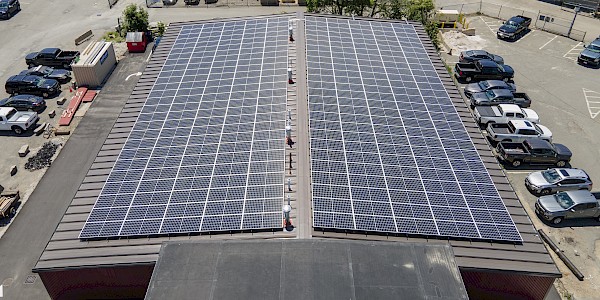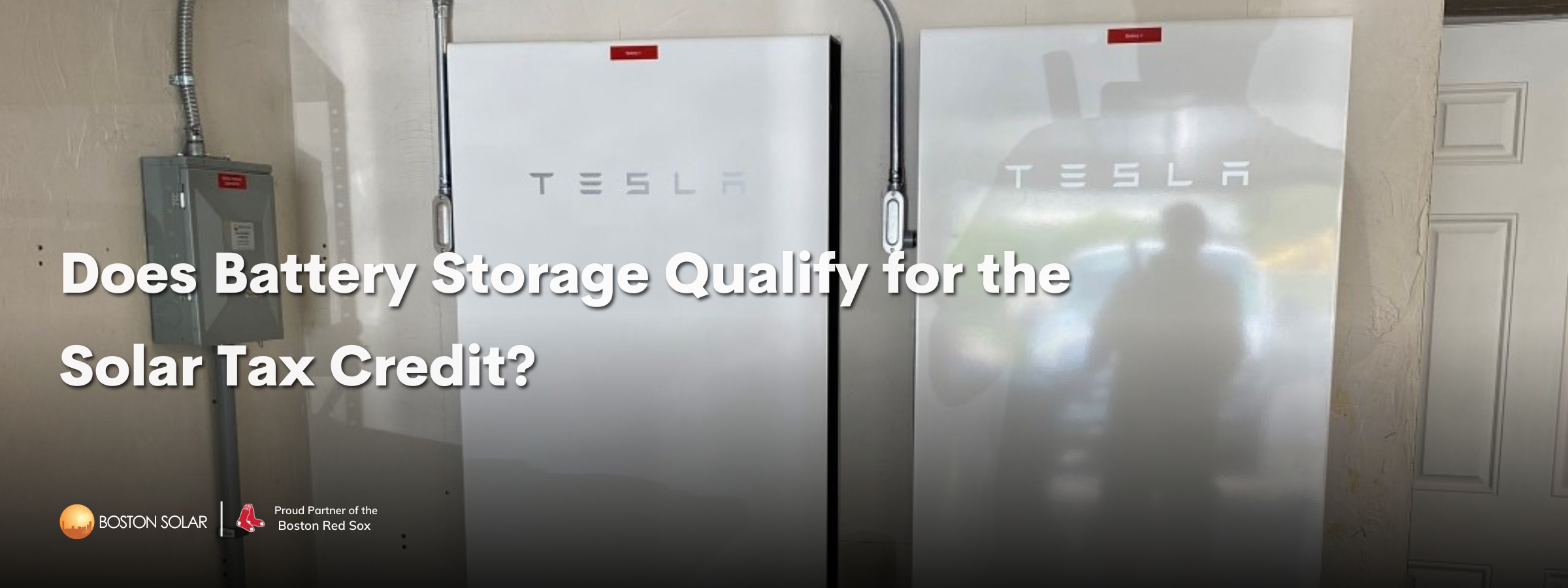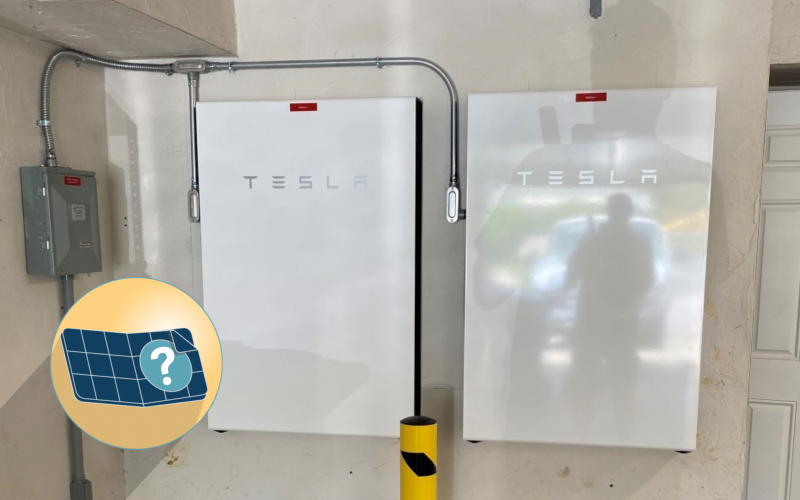Does Battery Storage Qualify for the Federal Investment Tax Credit?
Jul. 19, 2023
*DISCLAIMER: While this blog post discusses solar tax credits and filing your returns, you should ALWAYS consult your tax professional for your specific situation. We do not assume responsibility for your tax situation or credits
The solar investment tax credit (ITC) is a federal tax incentive for installing solar panels on your home or business, which reduces the cost of solar installation and will shorten the amount of time it takes to break even on your investment.
The solar tax credit reduces your federal tax liability by 30% of your total solar installation costs. And, those solar tax credit savings also apply to solar battery storage systems!
Here’s everything you need to know about the ITC for solar plus storage and how you can further your energy independence by including battery storage in your solar installation plans.
The Solar Battery Tax Credit in 2023
Adding battery storage to your residential solar panel system has never been easier, thanks to the new Inflation Reduction Act solar tax credit. The Inflation Reduction Act of 2022 (IRA) revamped the solar investment tax credit and expanded it to cover battery systems that are connected to solar panels and standalone solar batteries.
There are, however, some stipulations. To qualify for the solar battery federal tax credit, your battery system must have a capacity rating of 3 kilowatt-hours (kWh) or greater. Most residential solar batteries meet this requirement.
When Does the Solar Battery Tax Credit End?
The 30% federal tax credit for battery storage is available for solar battery systems that are installed between 2023 and 2032. At the end of 2032, the solar tax credit will be reduced annually and eventually phased out.
- 2023-2032: 30% solar battery tax credit
- 2033: 26% solar battery tax credit
- 2034: 22% solar battery tax credit
Installing solar plus storage sooner rather than later can secure tax credit savings and a faster solar payback period!
Can A Solar Battery Be Installed On An Existing System?
In most cases, solar batteries can be added to an existing solar system. Depending on the system’s design and the inverter used, updates may be required before the solar system can support a battery. Because of the complexities involved, we only add batteries to systems we originally installed.
It’s more cost-effective to install solar panels and battery storage at the same time. But, if you want to go solar now and aren’t ready to invest in a battery bank, we can install a “battery-ready” system. A battery-ready system is set up to support battery storage so it can be easily added at a later date.
If you install solar battery storage in a subsequent tax year to when your solar panel system was installed it may still be eligible for the solar tax credit. However, the energy storage device is subject to the initial installation date requirements.
Solar Battery Storage Is Worth It in 2023
Solar batteries add to the cost of your solar panel installation, but the benefits they offer make the additional cost more than worth it.
- Backup power during an outage
- Use more of the solar energy you produce
- 24/7 access to solar power—even at night and on cloudy days
- Reduce your fossil fuel consumption
- Increase your energy independence
Solar Battery Installation in Massachusetts & New Hampshire
Ready to take control of your energy? Boston Solar can help with professional solar panel and battery installation in Massachusetts and southern New Hampshire. We’ve been empowering New England for over 11 years and have installed thousands of solar panel and battery systems. We will make sure your system is designed to provide the maximum amount of renewable energy for your home, and that it qualifies for the solar panel and home battery tax credit.
Add solar battery storage to your home! Call 617-858-1645 or contact us to schedule a free consultation today.




